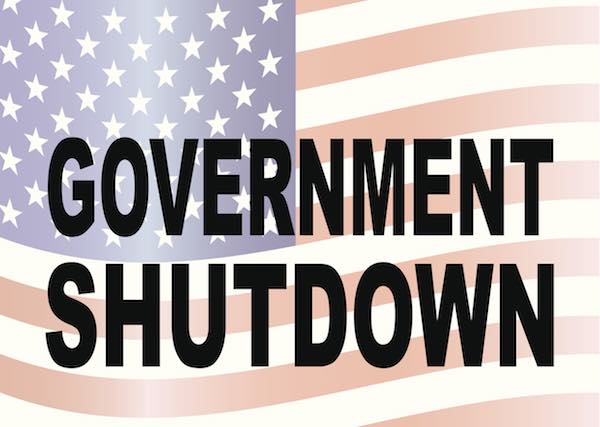Like most of you and the American people, I’ve been appalled by the partial shutdown Feds have been witnessing and experiencing. I’m grateful for the current pause in power games and hope it’s more than just a temporary breather. Whoever you blame for this mess and whoever wins or loses, recent events have highlighted the roles and functions of federal workers. This may prove the only positive outcome stemming from the chaos of the past month.
Enemy of the public
Many readers can recall the election campaign of 1980. That was the year I left my Service Representative position with the Social Security Administration and began a career in personnel management (now HR). During that campaign, Ronald Reagan’s conservatism was defined by his strong anti-Soviet stance and his even stronger smaller-government philosophy.
Looking back, President Reagan’s most famous quote is probably, “Mr. Gorbachev, tear down this wall!” Two others are mentioned in any listing of Reagan’s memorable words. They are “In this present crisis, government is not the solution to our problem; government is the problem.” and “The nine most terrifying words in the English language are ‘I’m from the government and I’m here to help.’” His words reverberated across the county and invigorated a movement toward demonizing government agencies and their workers that has persisted.
There is a history of threats against Feds who were just doing their jobs (especially in rural America) over the past few decades. Driving a government vehicle or wearing an agency uniform can still provoke members of the public. For the sole reason that they work for Uncle Sam, Feds have been ostracized from sea to shining sea and, lest we forget, 168 souls were lost in the bombing of Oklahoma City’s Murrah Federal Building.
In part, this is attributable to the decent pay and benefits Feds enjoy and earn. It also reflects a longstanding anti-government sentiment that has existed in our country since its earliest days.
Sympathy for the devil?
During the present political chess game, Feds have been the pawns. The press has been chasing stories relating to The President vs The Speaker, McConnell vs Schumer, and whether and where the State of the Union address would take place. News stories regarding the partial shutdown soon began to include coverage relating to the hardships experienced by many of the 8000,000 federal workers impacted.
Over the past few weeks, the stress of Air Traffic Controllers, the needs of TSA screeners, vandalism in our national parks, and the plight of Coast Guard families entered the media picture. Food banks became photo-ops for politicians and interviews of stressed Feds were regularly included in news reports. Federal employee union leaders were being perceived as spokespeople for those who want to work rather than protectors of those who don’t. …and the tide turned.
The numbers don’t lie
The statistics wonks working at the website 538 show President Trump’s average approval rating on December 22nd (the day the shutdown began) was 42.2% with a disapproval score of 52.8%. Not so good. As I write this piece less than 6 weeks later, the numbers have tellingly changed. The president’s approval rating has shifted downward by about 3 points (to 39.3), while the disapproval average has risen to 56%. Thus, the gulf between approval and disapproval has grown from about 10% to nearly 17%. In politics, that 2/3 increase is big news.
While pundits and potential candidates salivate and cower over this sudden and dramatic shift, I’m seeing recent events through a different lens. The characterizations of Feds have shifted. Secretary of Commerce Wilbur Ross was excoriated for suggesting Feds without ready cash should go shopping for loans. Similarly, Donald Trump was the butt of jokes for implying that grocers would be of help strapped civil servants with their anxiety over food needs and bills. Public opinion was on the side of civil servants.
The unintended consequence
We now enter a three-week hiatus, during which back pay will (hopefully) reach the bank accounts of government workers in short order. As I scan the media from Fox to CSPAN to MSNBC, nary a voice characterizes Federal workers as “the problem”. Rather, Feds are being viewed through a sympathetic (if not laudatory) lens by the press and the politicians. Even the most conservative of our elected officials have heaped praise upon Feds and their dedication to duty.
It’s my hope that this inadvertent effect of the shutdown will prove lasting. I teach seminars on how to effectively deal with performance and conduct problems. Years ago, as an Employee/Labor Relations Specialist, I assisted Navy managers in firing Feds and making it stick. In every seminar I present, supervisors, managers, and union officials are reminded that this population is tiny compared to those to those who are highly skilled and deeply dedicated to public service. During my years with Social Security and Navy, I marveled at coworkers who were immensely talented and hard-working. We didn’t need anyone to remind us of our agency’s mission nor motivate us with goals and objectives.
The effects of this shut-storm have ranged from inconvenience to tears for hundreds of thousands. I don’t minimize the pain… and worry about the humanity of those who do. At this moment, however, we should also celebrate an unexpected consequence of the past few weeks. In this moment Feds may be able to say, “I’m from the government and I’m here to help” without scorn and ridicule coming back at them.
It may only be a crack in the wall (pun intended) separating the general public from those who serve that public, and it may prove short-lived. The positive light that currently shines on the federal workforce is nevertheless welcome to the eyes of this former Fed.



